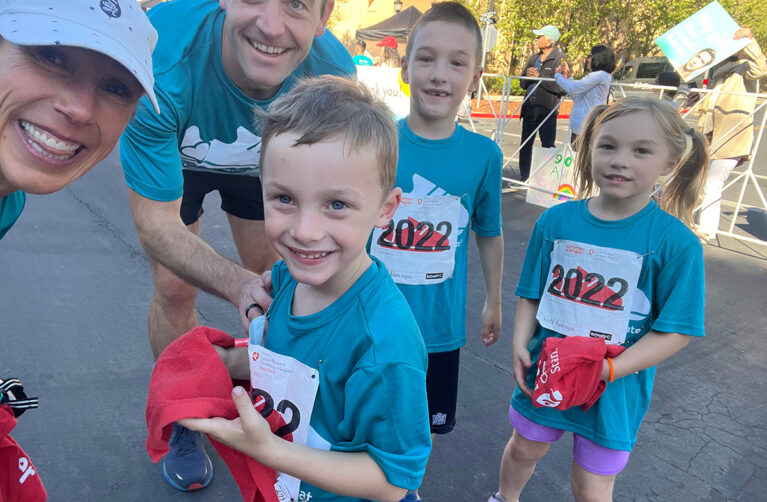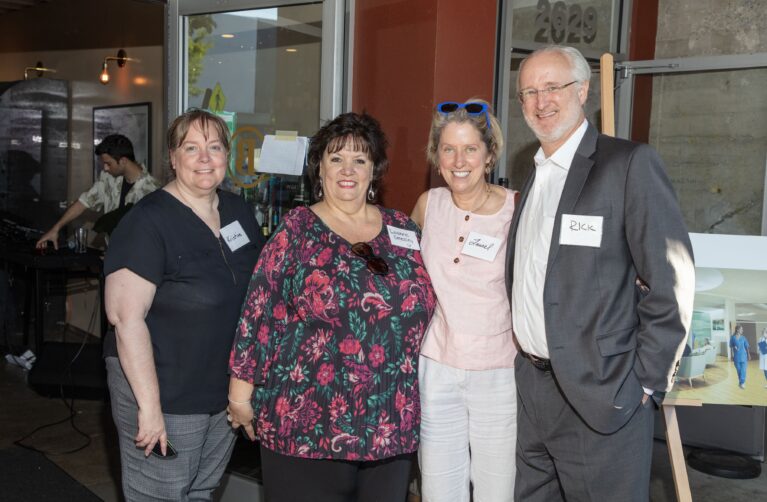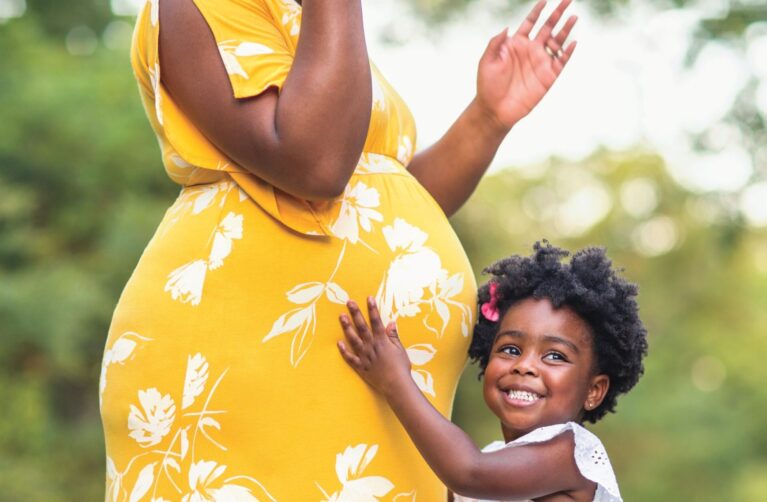On the day of Will’s birth, 1s were running wild. He was born in the 1 o’clock hour, on the 1st month of the year, on the 11th day of the month. He weighed a mere 1 pound, 11 ounces.
Will was born three months before his due date, at 24 weeks and 5 days into my pregnancy. He was a micro-preemie — defined as a baby born weighing less than 1 pound, 12 ounces, or before 26 weeks gestation.
In a way, we were prepared for a lengthy NICU stay. As a cancer survivor, I had been under the care of the high-risk maternal-fetal team at Lucile Packard Children’s Hospital, including my obstetrician Deirdre Lyell, MD, since my eighth week of pregnancy. At 20 weeks, I was admitted to the antepartum unit due to complications, and by 22 weeks, we were having unfathomable discussions about possible outcomes for our son.
According to the Centers for Disease Control, preterm birth affects one of every eight infants in the United States. This means that every day, parents who joyously expect a normal delivery and a homecoming must instead leave their fragile newborns in the care of doctors, nurses, and machines.
For whatever reason, my husband, Scott, and I had the impression that the NICU would be a quiet, contemplative environment. It’s quite the contrary. It’s intense. Codes. Alarms. X-rays. Bloodwork. Rounds. Life and death decisions. All of this activity surrounds you and fills your mind as you try to stay strong to support your family and be the best advocate for your little one.
We were also under the impression that medicine was equal parts great doctors and innovative technology. But what we quickly realized is that empathy plays an equally important part in this equation.
In the hospital, Scott and I knew everyone. Everyone knew us. We had our “NICU family” made up of other parents, nurses, doctors, and specialists. Like all parents, Will’s good days were our good days. His bad days were our bad days. The difference? On those good days when I knew it was okay to walk away from his isolette, I didn’t. I was somewhat paralyzed. No one asks how you are doing; the reality is that they just know.
What is the impact of this environment? A 2010 Stanford University School of Medicine study revealed that more than half the parents whose babies were in the NICU for an extended period of time either had Post- Traumatic Stress Disorder (PTSD), or were at high risk for developing it. PTSD, of course, is best known as the disorder soldiers develop after trauma in combat. This time though, it’s on the home front resulting from the battlefield known as the ICU.
Will endured several serious infections, septic shock, chronic lung disease, retinopathy of prematurity, patent ductus arteriosus, and silent aspiration. What helped me — especially in the early days of his NICU stay — were his amazing caregivers, including primary nurses Helen Bush, Cathy Newton, and Janet Martin, and his development specialist Lori Bowlby. They taught me to understand Will’s cues and how to comfort him through an isolette while he was hooked up to more machines than I choose to remember. I learned about the importance of kangaroo care and held our little guy as much as I could when he was stable.
Discharge day was bittersweet. On one hand, we were thrilled Will was coming home. On the other, we were terrified because we knew we’d be alone. As parents of a micro-preemie, we became well medicalized. However, Will required medical equipment, oxygen, numerous medications, early interventionists, and frequent visits to the specialists post-discharge. And he didn’t come with an instruction manual!
Now nearly 2 years old, Will continues to fight battles every day that are typically taken for granted— drinking from a cup, opening his mouth for purees, sitting, walking, talking. He’s still on oxygen and has a feeding tube to ensure he obtains proper nutrition.
But just as I was defined by Will, the way he entered the world has defined him, blessing us with a son of amazing courage and endless personality.
He is now the kid who loves to color, drives his parents crazy with his fake coughs, bats his enviably long eyelashes, and gives hugs like no one’s business. Perfect strangers approach us and ask, “What’s wrong with him?” I’ve come to welcome these encounters so I can share a little bit about his journey and let people know the littlest guys and gals do make it — and, often, catch up.
Life is fairly simple. People are the same everywhere — they want to live a better life than their parents and want their kids to live a better life than themselves. It is this thinking that motivates parents and caregivers of a child with a life-threatening illness. It is this thinking that drives doctors, nurses, and specialists to an intense devotion to children. It is this thinking that reminds my husband and me to never overlook any moment with Will. He has touched so many and reminds us each day that where there’s a will, there’s a way!
This article first appeared in the Fall 2014 issue of Lucile Packard Children's News magazine.




